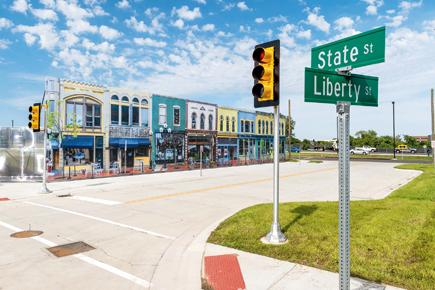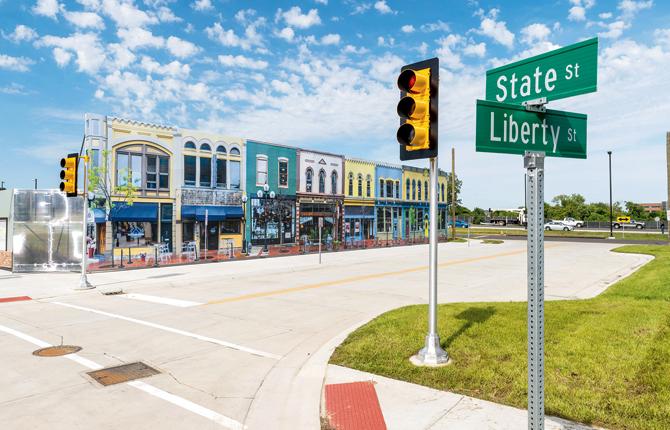Sprawled over 32 acres, researchers in the US have built a $10 million ‘fake’ town to test driverless cars; named as Mcity, the town features dummy shops, eating joints, sidewalks, streetlights and every trapping of a suburb

Mcity covers around 32 acres and contains all the trappings of a real suburb or small city. There is an entire network of roads lined with sidewalks, streetlights, stop signs, and traffic signals
Washington: Researchers in the US have built a $10 million ‘fake city’, which spans 32 acres and features dummy shops and restaurants, to test driverless cars of the future.
ADVERTISEMENT

Nobody home: Mcity covers around 32 acres and contains all the trappings of a real suburb or small city. There is an entire network of roads lined with sidewalks, streetlights, stop signs, and traffic signals. Pic/University of Michigan website
The University of Michigan has opened Mcity, the world’s first controlled environment specifically designed to test the potential of connected and automated vehicle technologies that will lead the way to mass-market driverless cars.
Mcity covers around 32 acres and contains all the trappings of a real suburb or small city. There is an entire network of roads lined with sidewalks, streetlights, stop signs, and traffic signals. There’s also a downtown area complete with fake building facades and outdoor dining areas.
“Mcity is a safe, controlled, and realistic environment, where we are going to figure out how the incredible potential of connected and automated vehicles can be realised quickly, efficiently and safely,” said Peter Sweatman, director of the Mobility Transformation Center (MTC) at the University of Michigan.
In addition to evaluating fully automated, or driverless, cars, the researchers also hope to test so-called connected vehicles within Mcity’s limits. Connected cars can either communicate with one another (vehicle-to-vehicle control, or V2V) or with pieces of equipment, such as traffic lights, that are located near roadways (vehicle-to-infrastructure control, or V2I).
Mcity was designed and developed by University of Michigan’s interdisciplinary MTC, in partnership with the Michigan Department of Transportation (MDOT).
Construction of Mcity began last year, and about $10 million has been invested in the test facility.
 Subscribe today by clicking the link and stay updated with the latest news!" Click here!
Subscribe today by clicking the link and stay updated with the latest news!" Click here!






